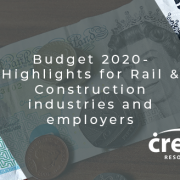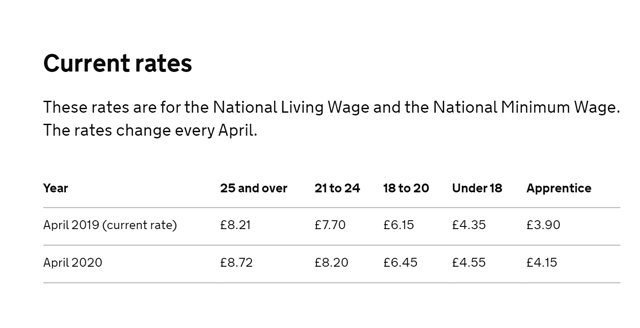Construction Job Search- Top 5 Ways to Find a Rail or Construction Job
With Rail and Construction being a contract-focused industry, do you ever feel like you are always performing a construction job search? Not sure if there are any places that you could be looking but are missing?
Working like this can be a rollercoaster, what if there were ways that you could cover every angle and give yourself the best opportunity?
To help you create a presence and find your next rail and construction job, we have pulled together our top 5 sources that you should utilise.
1. Search Job Boards to Find Construction Jobs
The obvious starting place to look for a job in any industry is job boards. Most recruitment agencies or companies that are hiring use job boards to get their job adverts out into the open. When searching on job boards, it is worth bearing a few tips in mind.
- Rail and Construction Jobs often have a quick turnaround. A job may become open and have a start date of tomorrow. Therefore, frequent checking of job boards is a must when you want to find a new rail and construction job.
- Take advantage of all the search options. Location, of course, keywords. Using keywords such as your tickets, and the full job name means more relevant search results (instead of wasting time browsing jobs that do not match your criteria).
Here are our top 5 job boards to find rail and construction jobs:
2. Upload Your CV to Job Boards
Most job boards have a feature available when you sign up that allows you to create a profile and upload or create a CV. Recruitment agencies and construction companies will search these job board CV services to find candidates for jobs they are searching for. It makes sense to sign up and create a profile, as it is another easy opportunity to let companies know about you and your work.
We recommend filling every option of the profile/ CV feature that they offer in, including your relevant tickets and their expiries. Between these, and your previous jobs, it lets recruiters know more about you and that you would be a perfect fit for their role.
Ensure you regularly update your profile/ CV after every job that you finish so that it is up to date with the skills you have most recently demonstrated or acquired.
3. Find and Register with Rail and Construction Recruitment Agencies
A focus when finding your next role in this industry is to make your presence as known as possible. Going direct to recruitment agencies themselves means that you bypass the middleman of a job board.
A simple search into a search engine for “Construction Recruitment Agencies” will help you uncover those that you need to speak to. There are a couple of ways that you can approach recruitment agencies to let them know that you are available for Rail and Construction jobs. These are:
- Register with them on their website. Visit their website and locate their Registration or Send us a CV page (you can find ours at crewitresourcing.com/quick-register). Upload a CV or create a profile, giving as much detail as you can. As this goes directly to them, you can avoid relying on them using a CV Search feature as indicated in the last source.
- Apply for jobs that are advertised on their website. Find the jobs page on their website and apply for any roles that you would be a good fit for. (ours is crewitresourcing.com/jobs as an example).
- Get in touch with them directly. Give them a call or send an email. Make a direct point-of-contact can stand you out from the crowd. Most recruitment agencies are happy to hear from candidates that are of good, suitable calibre.
4. Build Your Rail and Construction Network
Do you regularly work on sites with other workers? Great. Each one of those people knows other people and were all hired by someone for the job. Be friendly, introduce yourself and ask them whether they know anyone that they could put you in contact with.
Some of these candidates may also be in communication groups such as Whatsapp, where they find out about new roles and recommend each other. Nothing is better than a candidate that is recommended based on previous work, so when talking to other co-workers, ask them if they know of any that they can invite you to.
5. Use Facebook Groups to help your Construction Job Search
There are many Rail and Construction Jobs Facebook groups that workers can join and be a part of. Recruitment agencies and construction companies will post their latest jobs in there and they will show up inside your Facebook newsfeed.
Join our Rail and Construction Jobs in the UK and Ireland Facebook group to find out more.
The posts in these groups have plenty of benefits including training offerings and discussions with other construction workers. They are the ideal place to be seen and to discover new roles.
The value on Facebook can also be found on Facebook pages. Search for ‘Construction Recruitment Agencies’ or ‘Rail and Construction Jobs’ to find pages to follow. Once followed, any job posts or other posts that they have will show up inside your normal Facebook newsfeed, meaning you don’t have to go back to check them often.
We regularly post featured roles, as well as helpful articles like this one on our Facebook page, which can be found here.
Perseverance is the key when finding a new job, so covering every option means that you can be found when you need to be found. If you’d like a starting point to find your next, quick register with us today: crewitresourcing.com/quick-register



